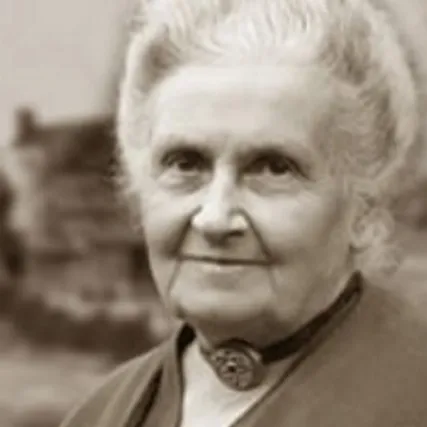Montessori Method
The Montessori method of education is a type of educational method that involves children’s natural interests and activities rather than formal teaching methods. Some of its unique components include mixed-age classrooms, and specific learning materials and curriculum.
A Montessori classroom places an emphasis on hands-on learning and developing real-world skills. It emphasizes independence and it views children as naturally eager for knowledge and capable of initiating learning in a sufficiently supportive and well-prepared learning environment.
Dr. Maria Montessori
Founder of the Montessori Methodology of Education
Maria Montessori was an Italian physician, educator, and innovator, acclaimed for her educational method that builds on the way children learn naturally. Montessori emphasized learning through all five senses and developed hands on, self-correcting materials.
She opened the first Montessori school—the Casa dei Bambini, or Children’s House—in Rome on January 6, 1907. Subsequently, she traveled the world and wrote extensively about her approach to education, attracting many devotees. There are now thousands of Montessori schools in countries worldwide.
Benefits of Montessori Schooling in Addition to Academics
Love of Learning
Inquisitive Mind
Sense of Order
Concentration and Organization
Self-Discipline, Self-Control and Appreciation
Responsibility – Completion of Task
Social Skills: Conflict Resolution, Thoughtfulness, Grace and Courtesy
Analyzing, Synthesizing, Summarizing, Critical Thinking and Communicating Skills
Independent Learning


